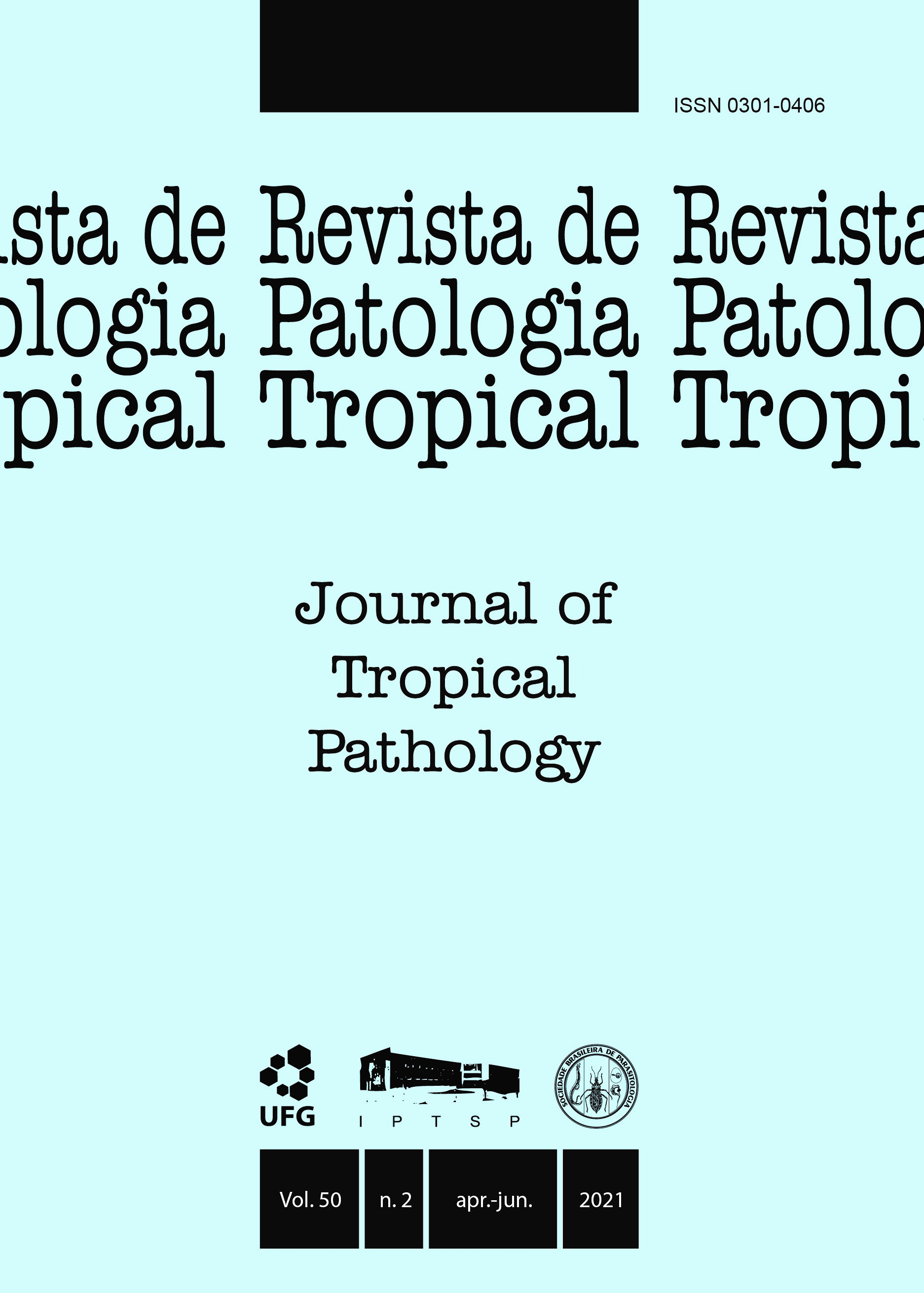Infection rate by TOXOPLASMA GONDII in free-range and broiler chickens in the states of Rio Grande do Norte and Paraíba, Brazil
DOI:
https://doi.org/10.5216/rpt.v50i2.67508Resumo
Toxoplasmosis is a zoonosis caused by Toxoplasma gondii, a protozoan that has a cosmopolitan geographic distribution and low specificity for intermediate hosts. Domestic chickens are among the most important hosts in toxoplasmosis epidemiology, since they are potential sources of infection for humans, in addition to indicating environmental contamination by protozoa. In this work, we studied the prevalence of T. gondii infection in chickens in different breeding systems from distinct mesoregions of Rio Grande do Norte and Paraiba States: broiler chickens from commercial farms and free-range chickens from small farms. Indirect fluorescent antibody test (IFAT) and ELISA techniques were used for detecting specific antibodies in blood samples from the birds. There were no seropositive samples among the broilers tested, indicating that intensive management limited the chances of infection for these animals. Among
the free-range chickens, the frequency of IgG anti-T. gondii detected by IFAT and ELISA were 37.9% and 40.4% respectively. Among the seropositive samples by IFAT, 33 (27.1%) were positive at a dilution of 1:16; in 1:32, 31 (25.4%); in 1:64, 24 (19.7%); 15 (12.3%) in 1:128, and 19 presented titers greater than or equal to 1:256 (15.6%). The substantial concordance observed between IFAT and ELISA signifies these methods are effective methodologies for the diagnosis of avian toxoplasmosis. The high prevalence of specific antibodies among poultry in the studied region highlights the potential risk of T. gondii transmission to humans through consumption of infected meat.
KEY WORDS: Toxoplasma gondii; chicken infection; toxoplasmosis transmission; seroprevalence.
Downloads
Downloads
Publicado
Como Citar
Edição
Seção
Licença
The manuscript submission must be accompanied by a letter signed by all authors stating their full name and email address, confirming that the manuscript or part of it has not been published or is under consideration for publication elsewhere, and agreeing to transfer copyright in all media and formats for Journal of Tropical Pathology.

